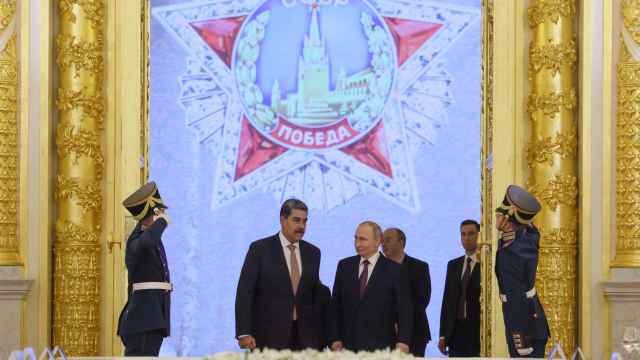On Sept. 15, Deputy Finance Minister Andrei Klepach, one of the most respected macroeconomists in Russia, said the Russian ruble exchange rate is overvalued by at least 10 percent. On Friday, Central Bank First Deputy Chairman Alexei Ulyukayev responded: “There is no reason to believe that the ruble is either overvalued or undervalued.”
In fact, it is a complex task to determine whether a particular currency is overvalued. First, it is necessary to reach agreement on indicators for determining a “natural exchange rate” relative to which a currency can be gauged as overvalued or undervalued. The simplest method is to determine the rate according to purchasing power parity. That entails dividing the ruble cost of a fixed “basket of goods” by its cost in dollars. According to calculations made by The Economist this summer, in which that hypothetical basket was filled with a single McDonald’s Big Mac, the ruble really is overvalued by 10 percent.
The statement by Klepach is not worrisome because it points to a serious failure of macroeconomic policy; after all, a 10 percent deviation — albeit hypothetical — from the “natural rate” is not significant. The concern is that Klepach might be trying to push the Central Bank into manipulating the exchange rate in an attempt to make it artificially low.
That could help exporters in the short term. But as we learned in 2008, when the Central Bank maintained a fixed exchange rate too long, holding an artificial rate leaves the government prone to heightened risk if a major element of the economy suddenly shifts — such as the price of oil, in the case of Russia.
Since that time — and after a successful managed devaluation of the ruble in 2009 — the Central Bank has maintained a floating exchange rate. That is the best policy at present because, as Sberbank chief economist Ksenia Yudayeva correctly pointed out last week, recent changes in external conditions have slowed the inflation rate, reducing the need to manage the exchange rate.
Harboring fears about the real importance of Klepach’s statement might be unwarranted. After all, it is far too early to talk about manipulating the exchange rate to benefit Russian businesses. But there is no harm in again pointing out that a floating exchange rate is the more reliable option for now.
Konstantin Sonin is a professor at the New Economic School in Moscow and a columnist for Vedomosti.
A Message from The Moscow Times:
Dear readers,
We are facing unprecedented challenges. Russia's Prosecutor General's Office has designated The Moscow Times as an "undesirable" organization, criminalizing our work and putting our staff at risk of prosecution. This follows our earlier unjust labeling as a "foreign agent."
These actions are direct attempts to silence independent journalism in Russia. The authorities claim our work "discredits the decisions of the Russian leadership." We see things differently: we strive to provide accurate, unbiased reporting on Russia.
We, the journalists of The Moscow Times, refuse to be silenced. But to continue our work, we need your help.
Your support, no matter how small, makes a world of difference. If you can, please support us monthly starting from just $2. It's quick to set up, and every contribution makes a significant impact.
By supporting The Moscow Times, you're defending open, independent journalism in the face of repression. Thank you for standing with us.
Remind me later.





